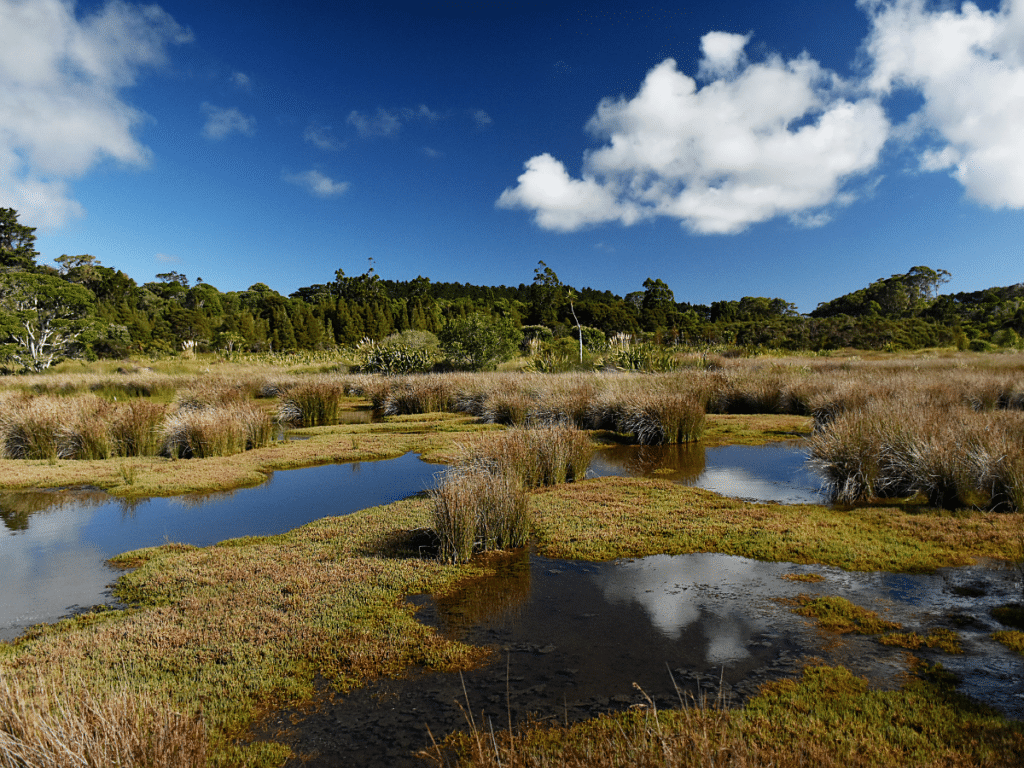When left to function correctly, wetlands act as havens of biodiversity and carbon sinks, as well as naturally purifying water. In a time where biodiversity is at critically low levels, and carbon emissions alarmingly high, they are an invaluable habitat that needs greater protection and reintroduction into our landscapes.
So, just how do wetlands function as ecosystems, and why are they so important?
Water Purification
Wetlands serve as natural water filters, trapping and filtering pollutants and excess nutrients from water. This purification process is a collaboration between the diverse vegetation found in wetlands and microbial communities in the soil. Together, they work to break down and assimilate contaminants, ensuring clean water both for aquatic ecosystems and human consumption.

Biodiversity Havens
Beyond their water-purifying capacity, wetlands act as biodiversity havens on a global scale – 40% of species globally rely on wetlands for their survival. Characterised by a unique blend of aquatic and terrestrial environments, they foster an incredible diversity of plant and animal species. Often housing rare and endangered species, wetlands in the UK act as critical breeding and feeding grounds for an array of birdlife, amphibians, and insects.
Natural Flood Protection
Wetlands don’t just purify water and support biodiversity; they also offer natural flood protection. During heavy rainfall, they absorb and store excess water, helping to prevent flooding and run-off into settled areas downstream. Natural Flood Management is increasingly recognised as an effective intervention for habitat creation and nature friendly farming as well as attenuating floodwater.

Excellent Carbon Stores
Not only are they excellent flood protectors, but wetlands are also excellent carbon stores. The breakdown of plant matter and the accumulation of organic material over thousands of years characterise forms peat bogs, a specific type of wetland. A significant carbon sink, peat bogs ‘lock away’ substantial amounts of carbon, contributing significantly to climate change mitigation efforts. Renewed efforts to preserve peatland reflect the essential role they play in fighting climate change.

